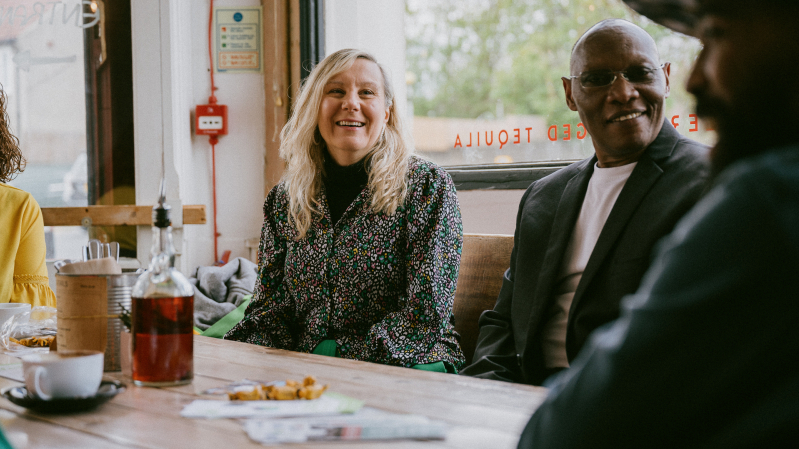
Millions of people including children are living in poverty in the U.K. today, according to official figures. Now a church-based charity struggling to cope with enough resources to support them has sounded the alarm in a rallying cry to Christians to step up helping those in need.
Christians Against Poverty (CAP) recently posted on social media saying “U.K. poverty is at a critical level” and nearly half of the British charity’s clients have tried or thought about committing suicide to escape their dire circumstances before seeking help: 46 percent of clients. “The number of people in need of help has surged”, according to the CAP post.
A CAP Client Report 2024 says that mental health, low incomes and rising costs are all factors affecting the situation, causing 90 percent of clients to suffer sleepless nights because of debt.
Christian Daily International approached CAP to request further information about the crisis. CAP responded that the charity’s frontline teams, often working out of local church buildings, were struggling with a bloating in demand for support and “complex client cases are pushing them to their limits.”
Some 4,000 people were turned away from CAP centers last year because of appointments being fully booked due to the high numbers of desperate people seeking help.
Ruth Mulvenna is the manager for CAP’s Lewisham debt center based at Grace Church Brockley in London.
“I’d have never imagined how drastically UK poverty was about to escalate when our church first opened a CAP debt center three years ago,” said Mulvenna, giving examples about what was happening: “Household income that isn’t enough to cover basic essentials. Families going hungry. Thousands unable to pay their rent and bills due to persistently low incomes.”
Mulvenna said that Grace Church members had been working hard to help people find freedom from their situations but the demand clearly outstripped available resources to meet those needs.
“At Grace Church, we’re going above and beyond to see people step into the fullness of life that Jesus desires for each of us. We’re delivering emergency aid, tackling isolation, and supporting people who are at crisis point.
“But, as it stands, we are only able to help a certain number of people, and it’s not enough to match the demand. It breaks my heart to say this, yet last year our church had no choice but to turn away 58 people who asked for help with their debt.”
Mulvenna said the situation could not continue with people being turned away when they ask for help.
“I can’t bear to turn anyone else away. The surge in poverty requires an equal and urgent surge in response – the kind that will enable us to double the number of people we can see. It’s hard to find the words to express how much we need support right now.”
Mulvenna is one of the main voices for CAP’s newly launched emergency appeal, alongside one of her clients known as ‘Jim’ [surname not given] who had a respectable career before he fell into hard times.
“I had a successful career as a technical support engineer that came to an abrupt end when I ended up in hospital through back pain,” said Jim. “I couldn’t work and keep on top of the bills. Our family home was repossessed and my marriage crumbled. I felt I had no one to turn to. Frankly, I was a wreck.
“But on Ruth’s first visit to me, she said, ‘From this day forward, you are not alone’. For the first time, I felt that someone understood how I was feeling.
“Together, we started gathering all the mail that I’d been so afraid of opening. From then on, I could send the demanding letters straight on to CAP to deal with, and if the creditors called I could simply say, ‘I’m working with CAP’ and they’d back off.”
Mulvenna also supported Jim by looking with him at how to alleviate debts under the British welfare system.
“Because I was still off work sick with no wage, just the Universal Credit, and I had no assets, Ruth explained the benefits and consequences of going through a Debt Relief Order (DRO),” said Jim. “When an advisor from CAP called me to confirm that I was now debt free, it felt surreal. I couldn’t believe I’d been given this opportunity to start again. All of that fear, worry and shame had gone.
“Following the DRO, I also decided to attend CAP’s money coaching course. I wish I’d known this stuff years ago, because it felt like I was back in control, empowered. It was just what I needed. My finances are still on a knife edge despite being debt free, and so it makes a big difference to have these tools to draw on.”
Jim also found a new path by discovering that God really did care about him. Mulvanney invited him to a Grace Church service and his life properly changed “after years of not wanting anything to do with God or faith.”
“I started going to services and loved it. I tell everyone I’m living my ‘James 2:18 moment’ because I think that verse sums it up: ‘Show me your faith without works, and I will show you my faith with works’. For me, the best thing to have come out of my time with CAP is the community and support network that I’ve gained, and the confidence to welcome other people in too.”
Stuart McCulloch, chief executive officer for CAP, confirmed that poverty in the U.K. had reached a “critical level” and observed the “devastating” experience of seeing a lot more people desperately turning to the charity for help with debts. He said that the charity currently needed £500,000 to cope with the burgeoning crisis.
“More clients than ever have complex needs, and almost half said they’d considered or even attempted suicide as a way out of debt before coming to CAP,” said McCulloch. “Addressing these complex needs takes more time and support, so it weighs heavily on me that we had to turn away over 4,000 people last year due to a lack of resources or because we simply didn’t have a debt center near them.
“We have been doing everything we can, providing help and support to over 8,300 people and their families last year. Despite the economic challenges which left us with fewer resources, we still managed to help 18 percent more people go debt free than we did in 2022.
“I know that poverty can seem unrelenting, but it doesn’t have to be this way. Everyone in this country should be able to live a full life and not just scrape by. Getting the right help and support is the first step that has transformed the lives of tens of thousands of people like Jim, and meant they could thrive, and not just barely survive.”
McCulloch asked for donations to help people such as Jim find transformation “through the power of their local church.” The CAP appeal is being match-funded so the first £150,000 raised would be doubled.
“Our emergency appeal will help us double the amount of appointments for people needing help, and dramatically increase the number of local church partners we work with, so that every part of the UK is within reach of a church delivering our debt help services,” said McCulloch.
CAP estimates that one in five people in the U.K. lives in poverty, including nearly four million children. Similar figures are shown by another charity concerned about the poverty crisis in the U.K. The Joseph Rowntree Foundation (JRF) issued a warning in Jan. that “very deep poverty” has risen in the past 20 years in a report entitled, ‘UK Poverty 2024: The essential guide to understanding poverty in the UK.’
In a foreword to the report, Paul Kissack, group chief executive for the thinktank, said six million people were “in very deep poverty” in 2021 to 2022 in the U.K. He said that was one-and-a-half million more people, by comparison, than two decades ago.
These figures equate to 14.4 million people (22 per cent) in the country living in poverty: 4.2 million children, 2.1 million elderly pensioners and 8.1 million working-age adults.
To illustrate this another way – three out of 10 children live in poverty in the U.K. and two out of 10 adults.
“In short, poverty in the UK is deepening,” said Kissack. “The deeper we look, the faster it is rising. People in poverty are moving further and further below the poverty line.
“Little wonder that the visceral signs of hardship are all around us. Food-bank use and the number of families living in temporary accommodation are at record highs. Extreme forms of hardship, like having to rely on charity to be able to eat or stay warm, have become shockingly commonplace.”





